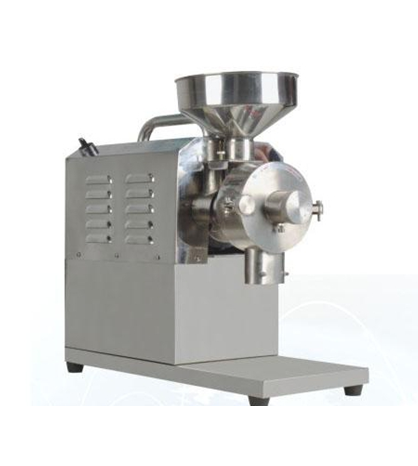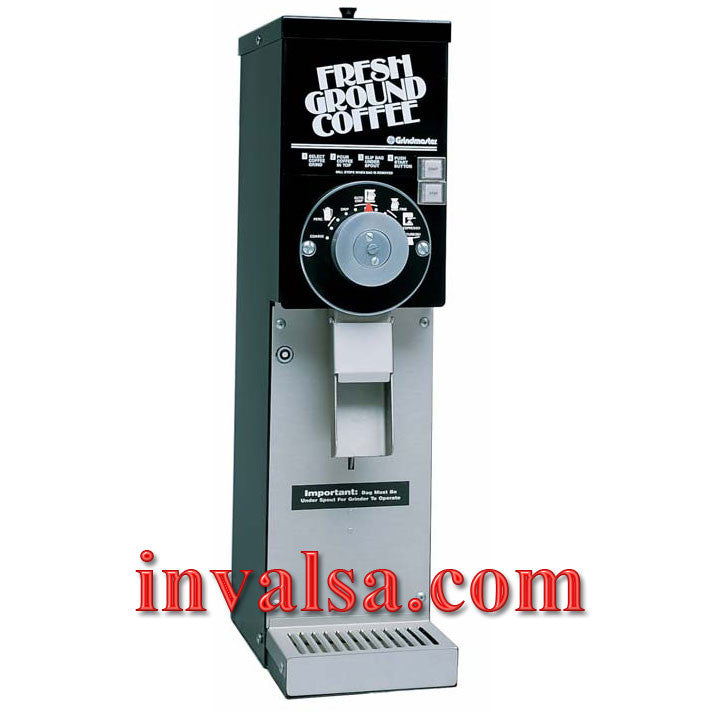Industrial Coffee Grinder for Bulk Coffee Production: Essential Information
Wiki Article
Industrial Coffee Mill Guide: Boost Performance and Quality
In the affordable landscape of coffee manufacturing, picking the right commercial coffee grinder plays a crucial function in enhancing both performance and item quality. Comprehending the nuances of different grinder types and essential attributes-- such as customizable grind settings and robust building and construction-- can considerably affect the last taste account of the coffee. The optimization of the grinding process, paired with diligent maintenance, is vital for sustaining efficiency over time. As we explore these crucial components, it comes to be noticeable that the effects expand past simple equipment choice, influencing overall service success in ways that call for closer evaluation.Comprehending Mill Types
When picking an industrial coffee mill, comprehending the numerous types offered is crucial for optimizing both flavor removal and operational effectiveness. The two primary kinds of mills are blade grinders and burr grinders.
Ultimately, selecting the right kind of grinder is integral to keeping quality and efficiency in coffee manufacturing, making it critical for services to buy high-quality burr mills for optimum outcomes.
Secret Attributes to Think About
Selecting a commercial coffee grinder requires mindful factor to consider of a number of key functions that can significantly influence both efficiency and the total coffee experience. Among the primary facets to assess is the grinding system. Burr mills are usually preferred over blade mills, as they offer a constant work dimension, which is crucial for ideal removal and flavor.An additional crucial feature is the grinder's ability. A flexible mill with numerous setups allows you to customize the grind dimension to different developing approaches, improving the coffee's flavor profile.
The building and construction material likewise plays a role in resilience and upkeep. Stainless steel components commonly offer longevity and are much easier to cleanse, which is essential for keeping health standards. Examine the mill's sound degree, particularly in a busy coffee shop or production atmosphere, where too much sound can be turbulent. Investing in a grinder that balances these features can considerably boost both operational performance and the high quality of the coffee offered.
Optimizing Grinding Refine
To accomplish the very best lead to coffee prep work, optimizing the grinding process is vital. The work size significantly influences removal, taste, and overall high quality of the made coffee. Various developing approaches require certain work dimensions; for example, espresso demands a fine work, while French press demands a coarse structure. Comprehending the partnership in between work size and brewing method is the primary step in optimization.


Additionally, keeping an eye on the grinding rate can enhance the process. Slower grinding typically creates less warm, preserving delicate flavors and aromas. Conversely, much faster grinding might create too much warmth, adversely influencing the coffee's top quality.
Upkeep and Treatment Tips
Appropriate maintenance and treatment of commercial coffee grinders are important for guaranteeing ideal performance and long life. Normal cleansing is the foundation of maintenance; deposit build-up can impact flavor and grinding efficiency. It is suggested to cleanse the grinder after each use, cleaning down the outside and removing any coffee premises from the burrs.In addition, check the grinding burrs for deterioration. Boring burrs can jeopardize grind consistency, so they should be replaced as required. Industrial Coffee Grinder. Regularly calibrating the grinder is also important, as this maintains the wanted grind dimension for different more information brewing approaches
Lubrication of moving components ought to be performed according to the supplier's specs, as this reduces rubbing and prolongs the life of the devices. It is vital to use food-grade lubricating substances to guarantee safety and conformity with health guidelines.
Lastly, maintain the grinder in a steady and dry atmosphere to stop corrosion and rust. By sticking to these maintenance and treatment ideas, operators can boost the efficiency of their commercial coffee grinders while making certain premium output and expanded operational life.
Roi Analysis
Examining the return on investment (ROI) for industrial coffee mills is critical for companies seeking to maximize their coffee production capabilities. A thorough ROI analysis helps figure out the economic viability of buying premium mills, blog here permitting organizations to consider the initial costs against prospective gains.To carry out a detailed ROI evaluation, businesses ought to think about a number of essential aspects. Initially, analyze the acquisition rate of the mill, consisting of setup and any type of needed adjustments to existing infrastructure. Next, calculate functional prices, consisting of energy consumption, upkeep costs, and labor effectiveness improvements. High-performance mills usually bring about minimized grinding time and enhanced throughput, which can significantly boost efficiency.
Furthermore, take into consideration the effect on item quality. Industrial Coffee Grinder. Superior mills produce an even more constant work size, which can boost flavor profiles and customer satisfaction, eventually driving sales. By increasing the top quality of the end product, services can warrant greater pricing, bring about enhanced earnings
Conclusion
In recap, a commercial coffee mill plays a pivotal function in boosting both efficiency and item top quality within coffee production. By picking top notch burr grinders furnished with essential functions such as flexible grind settings and long lasting construction, organizations can ensure optimal taste extraction. Furthermore, regular maintenance is important for sustaining mill efficiency and making best use of customer fulfillment. Inevitably, the strategic investment in a dependable grinder contributes considerably to improved income and competitiveness in the coffee industry.In the affordable landscape of coffee manufacturing, choosing the ideal industrial coffee grinder plays a pivotal duty in improving both effectiveness and product top quality. The 2 main types of mills are blade grinders and burr mills. Within the burr mill classification, there are flat page burr mills and cone-shaped burr grinders, each with its benefits. Burr grinders are generally favored over blade mills, as they offer a consistent work size, which is essential for optimum removal and flavor.
In recap, an industrial coffee grinder plays an essential duty in improving both efficiency and item quality within coffee manufacturing.
Report this wiki page